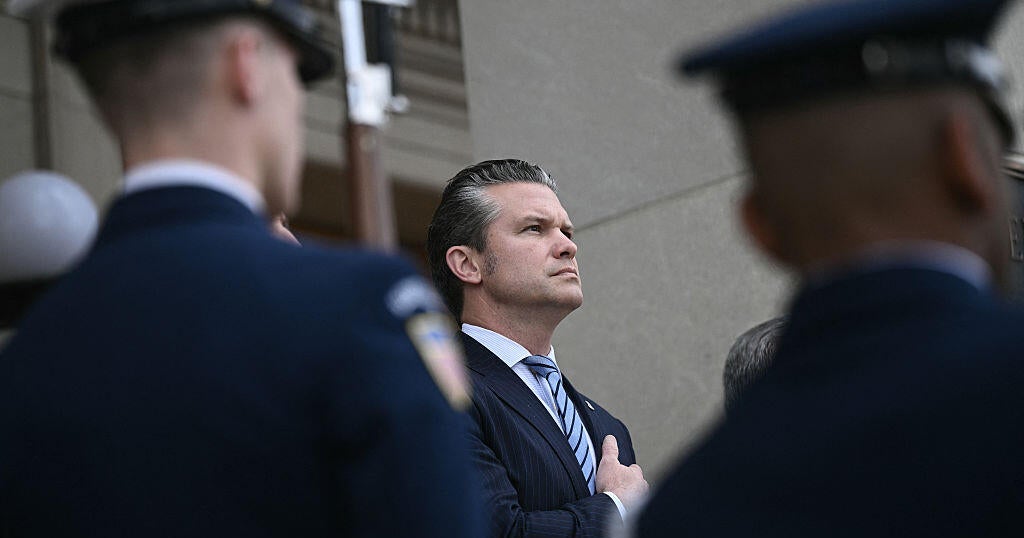In a significant shift within military protocols concerning its educational and informational resources, the Pentagon has been tasked with reassessing and potentially purging library content that centers on concepts related to diversity, anti-racism, and gender identity. The order, issued on Friday under the Trump administration, directs military leaders to conduct a comprehensive review of such materials in a bid to focus on instructional content that is strictly mission-oriented.
Following the recent directive, military leaders are to scrutinize books and materials in libraries at their institutions, singling out those that could be seen as inconsistent with the core objectives of military education and training. The process involves the sequestration of these materials by May 21, pursuant to a deliberate review to determine their alignment with the Pentagon’s defined purposes. An “appropriate ultimate disposition” of the identified materials will follow the review, indicating possible removal or restriction of access to such resources within military educational facilities.
The Pentagon has elucidated that the reviewed content categories include topics such as “affirmative action”, “allyship”, “anti-racism”, “critical race theory”, “discrimination”, “diversity in the workplace”, “gender identity”, “transgender people”, and “white privilege”. These thematic areas, as listed by the Pentagon’s new order, underscore the administration’s intent to streamline educational resources to what it deems as non-divisive and pertinent to military duties.
To assist in this expansive auditing effort, a temporary body known as the Academic Libraries Committee has been established. This committee is tasked with providing procedural guidance and developing a set of search terms that will help in the preliminary identification and sequestration of the materials requiring in-depth review. The administration argues that the intervention seeks to ensure educational resources remain focused on enhancing operational readiness and eschewing elements that could engender division within the ranks.
This recent pivot aligns with a broader campaign by the Trump administration to recalibrate the thrust of educational content within federal institutions towards a more narrow interpretation of pertinent knowledge, ostensibly aimed at fostering unity and operational efficacy at the expense of broader educational discourse on societal issues.
In recent weeks, this systematic reevaluation has already impacted several premier military institutions. Notably, the Naval Academy was prompted to withdraw numerous books from its library shelves. Removed titles included those revolving around the Holocaust, feminism, civil rights movements, and narratives tackling systemic racism. This sweeping action embodies the broader administrative objective to reshape the informational landscape in military training environments.
Critics of this policy move argue that it represents a substantial narrowing of the intellectual and educational horizons within the military, potentially stifling critical thought and awareness around issues that influence both military and civilian spheres. They contend that understanding a range of perspectives, including those offered by studies in diversity and anti-racism, can be essential in fostering leadership qualities and operational efficiency in diverse global contexts where the U.S. military often operates.
Supporters, however, argue that the focus should be on core military values and functions, emphasizing that educational resources should directly support the readiness and coherence of the armed forces. They view the removal of what they consider ideologically charged or divisive material as integral to maintaining morale and unity in the military hierarchy.
This ongoing review process and the resultant actions it precipitates will likely continue to stir debate on the balance between a focused military education and a well-rounded one that includes exposure to various societal perspectives. The implications of such educational policy decisions echo beyond the confines of military institutions, touching on broader discussions about education, policy, and governance in an increasingly complex and contested social environment.
The recalibration of educational resources within the U.S. military underlines a significant moment in the intersection of national security, education policy, and cultural discourse. As this situation continues to unfold, it will serve as a critical case study in how educational norms and priorities are contested and defined within one of the country’s key institutions. Further developments will undoubtedly provide more insights into the evolving relationship between military preparedness and educational breadth in training America’s future military leaders.









